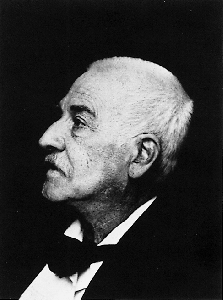A Quote by Ursula K. Le Guin
The individual cannot bargain with the State. The State recognizes no coinage but power: and it issues the coins itself.
Related Quotes
The seventeenth century is everywhere a time in which the state's power over everything individual increases, whether that power be in absolutist hands or may be considered the result of a contract, etc. People begin to dispute the sacred right of the individual ruler or authority without being aware that at the same time they are playing into the hands of a colossal state power.
The State, of course, is absolutely indispensable to the preservation of law and order, and the promotion of peace and social cooperation. What is unnecessary and evil, what abridges the liberty and threatens the true welfare of the individual, is the State that has usurped excessive powers and grown beyond its legitimate function - the super-State, the socialist State, the redistributive State, in brief, the ironically misnamed 'Welfare State.'
It is unfortunately none too well understood that, just as the State has no money of its own, so it has no power of its own. All the power it has is what society gives it, plus what it confiscates from time to time on one pretext or another, there is no other source from which State power can be drawn. Therefore every assumption of State power, whether by gift or seizure leaves society with so much less power; there is never, nor can be, any strengthening of State power without a corresponding and roughly equivalent depletion of social power.
[T]he mass-man sees in the State an anonymous power, and feeling himself, like it, anonymous, he believes that the State is something of his own. Suppose that in the public life of a country some difficulty, conflict, or problem presents itself, the mass-man will tend to demand that the State intervene immediately and undertake a solution directly with its immense and unassailable resources. This is the gravest danger that to-day threatens civilisation: State intervention; the absorption of all spontaneous social effort by the State.
The point of the overall meditative path is to have Wakefulness (or Consciousness as Such) transcend and include all state-realms, so it ceases to "black out" or "forget" various changes of state (such as dreaming and deep sleep), and instead recognizes a "constant Consciousness" or ever-present nondual Awareness, the union (and transcendence) of individual finite self and infinite Spirit.
In our decrees, it is definitely proclaimed that religion is a question for the private individual; but whilst opportunists tended to see in these words the meaning that the state would adopt the policy of folded arms, the Marxian revolutionary recognizes the duty of the state to lead a most resolute struggle against religion by means of ideological influences on the proletarian masses.
The sovereignty of the state as the power that protects the individual and that defines the mutual relationships among the visible spheres, rises high above them by its right to command and compel. But within these spheres ... another authority rules, an authority that descends directly from God apart from the state. This authority the state does not confer but acknowledges.



































